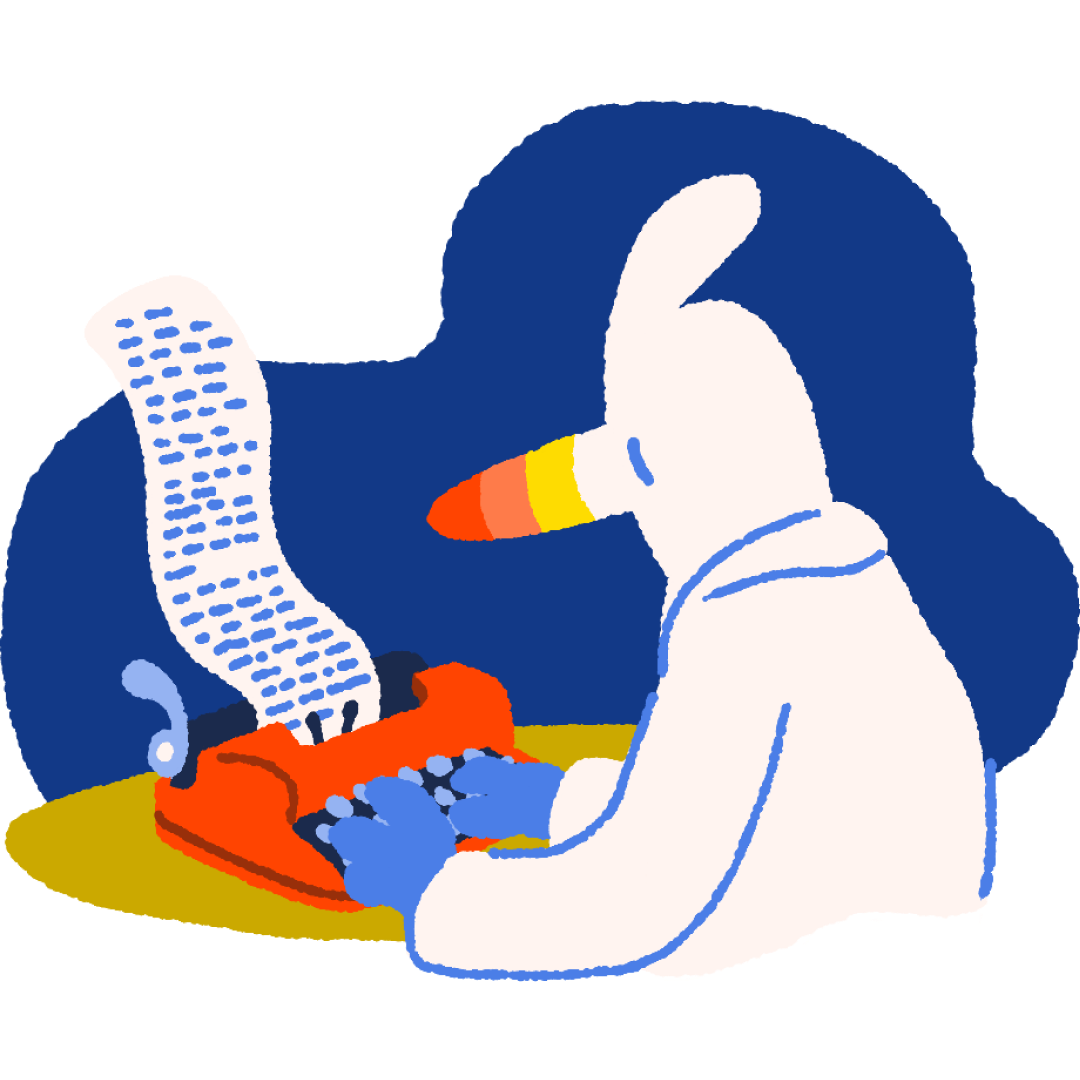How my ADHD diagnosis helped me understand my tech-addiction

Hi friend,
Since receiving a diagnosis for dyslexia in primary school, I’ve been aware that my brain is wired slightly differently.
Like my The Apprentice-winning brother Tom[1], I’ve generally seen this as a positive, and I recently discovered that I have also benefitted from the gifts of combined-type ADHD as well.
But wait, isn’t ADHD just for hyper little boys?
The condition we now call ADHD was first identified in [2], and 99% of the research since then has focused exclusively on boys[3]. Researchers didn’t even start running clinical trials on girls until the 80s and adult ADHD wasn’t formally recognised by the UK NHS until 2008.[4]
We now know that ADHD affects about 3 to 4 in every 100 adults[5] and the condition presents are very differently in girls and women.
Unlike boys, many of whom show hyperactivity, girls’ symptoms are often more of inattentiveness and disorganisation. Social pressure often means girls internalise their symptoms[6] making them three times less likely to be referred for assessment than boys.
My ADHD went unnoticed for 40 years, but it’s gifts shaped my career.
If something interests me, I can sink into a deep focus and get completely absorbed. This “hyperfocus” helped me study for exams in particular—I’ve never had a grade lower than an A.
I can find patterns and connections between things, which helps me think creatively—this led me to Art College, to my BA and into advertising.
My brain craves dopamine and newness—this naturally led me to the unlimited-problem-solving world of computer programming as a self-taught developer.
My ADHD has also shaped my identity.
I can be highly energetic and channel boundless energy into something I’m passionate about.
I’m always happy to change plans, be spontaneous, and I welcome a new opinion.
My impulsivity pushes me to take risks (or at least what may seem like risks to others), driving me towards new, and ambitious challenges.
But it hasn’t all been positive.
Hyperfocus is great, but when something stops challenging me I can easily get bored with it, and doing anything that doesn’t interest me requires enormous effort.
A lack of motivation to do things that don’t capture my interest (like packing, or my tax return) generally lead me to mind-wandering-fuelled procrastination, last-minuteness and frequently missed deadlines.
I often struggle to stay in the moment. The constant chatter of my brain and “time-blindness” mean I frequently loose critical items and forget important meetings or details.
I have a difficult time drawing from past experiences (in fact I struggle to remember my life at all) and this impacts my self-confidence, and my sense of identity.
Whilst digital tools have helped me to remember appointments, to locate lost items and be more organised in general, I have a mixed relationship with my tech.
I’ve built a successful career on my love of technology, from working as a creative technologist to teaching others how to code. But I recognised early-on that I couldn’t trust myself with computer games. After Prince of Persia 3D nearly derailed my GCSE’s, I knew that I needed to stay away from gaming.
Over the years, whilst my love for tech has generally been positive, I’ve always struggled to maintain a healthy relationship with my devices. This eventually led me to my co-founder role at Mind over Tech.
When I first received my diagnosis, I started researching how this is impacting businesses, and professionals in a digital workplace.
Research on the brain-health consequences of digital technology has shown that frequent use heightens ADHD symptoms[7] and that remote workers with ADHD are 54% more likely to struggle with digital overwhelm than their on-site colleagues.[8]
However, studies also show that a more neurodiverse workforce can be more productive and efficient, and if they are given the right support, teams that include some neurodivergent professionals can be up to 30% more productive than teams without.[9]
When companies embrace neurodiversity, they gain competitive advantages in many areas—productivity, innovation, culture and talent retention to name just a few.[10]
If you want to increase the diversity and inclusivity of your team, then focussing on digital wellbeing should be a priority.
Adult ADHD diagnoses have been rising for decades[11] and the rates of newly diagnosed women has nearly doubled from 2020 to 2022.[12]
At Mind over Tech, we’ve seen a massive increase in learners who are seeking, or have recently received, a diagnosis for ADHD.
Developing an ongoing practice to maintain digital habits that align with your goals is valuable to any working professional, but seems to be particularly important for ADHD brains. Many seem to benefit from the accountability and weekly rhythm provided by a live cohort-based learning experience, like our Digital Habit Reset—a course we’ve specifically designed to ensure engages any neurodiverse learners.
Whilst I’m grateful for my ADHD superpowers, I now understand that my brain needs more support to enjoy my tech responsibly.
Through Mind over Tech, I’ve learned that developing healthy digital habits is not a one-and-done.
It’s a process of finding out what works for me and noticing the tiny shifts in my behaviour that can have a massive impact on my wellbeing and productivity.
It’s about developing a practice to help bring me back when bad habits creep in.
Most of all, it’s about shifting my mindset to accept that I am in control, and can take action when I feel disconnected and overwhelmed.
Have you been diagnosed with ADHD? Hit reply and let me know how this impacts your digital habits.
Want to learn more about the Mind over Tech curriculum, including our sessions and resources to support neurodiveristy and inclusion through digital habits training?
— Harriet
Co-founder of Mind over Tech

P.S If you have ADHD and are looking for tools and tips to improve your digital habits, then you may find the free resources in our Community useful.
[1] Digital Spy (2011). ‘Apprentice’ Tom Pellereau: 'Dyslexia has always been positive for me’
[2] National Institute of Medicine. (2010). The history of attention deficit hyperactivity disorder
[3] Quartz (2016). Decades of failing to recognize ADHD in girls has created a “lost generation” of women
[4] National Institute for Health and Care Excellence. (2008) Attention deficit hyperactivity disorder: diagnosis and management
[5] Royal College of Psychiatrists (2023). ADHD in adults
[6] National Institute of Medicine (2020). Females with ADHD
[7] National Institute of Medicine (2020). Brain health consequences of digital technology use
[8] Skynova (2023). Navigating the Challenges of ADHD at Work
[9] Deloitte (2022). A rising tide lifts all boats
[10] Forbes (2022). Neurodiversity And The Workplace
[11] Time (2023).What’s Driving the Demand for ADHD Drugs Like Adderall
[12] Epic Research (2023). Number of ADHD Patients Rising, Especially Among Women